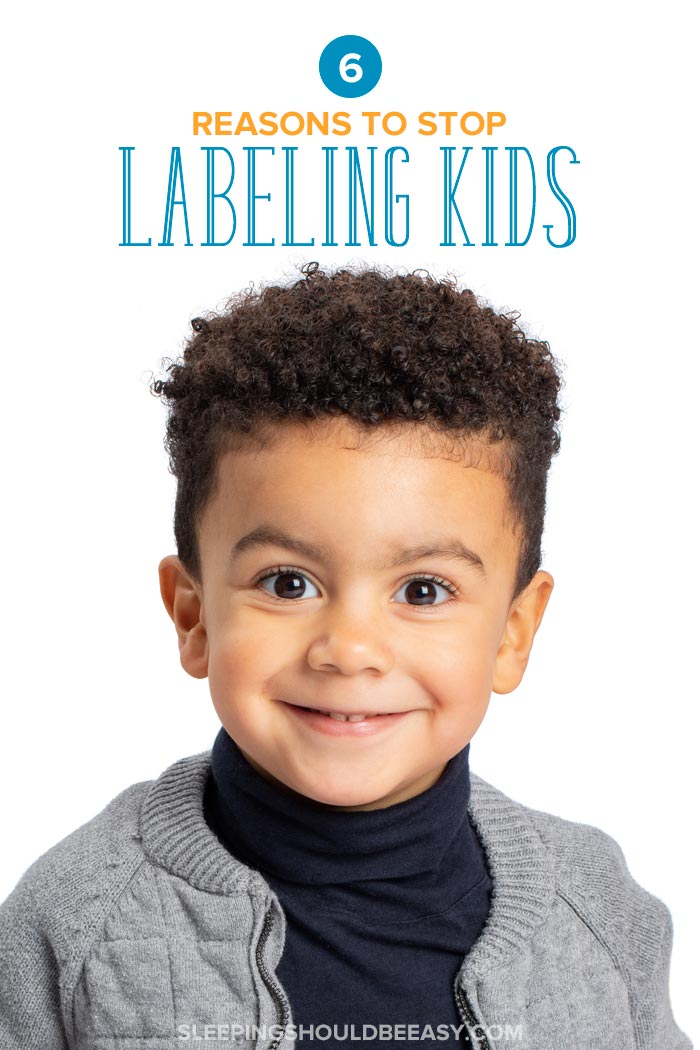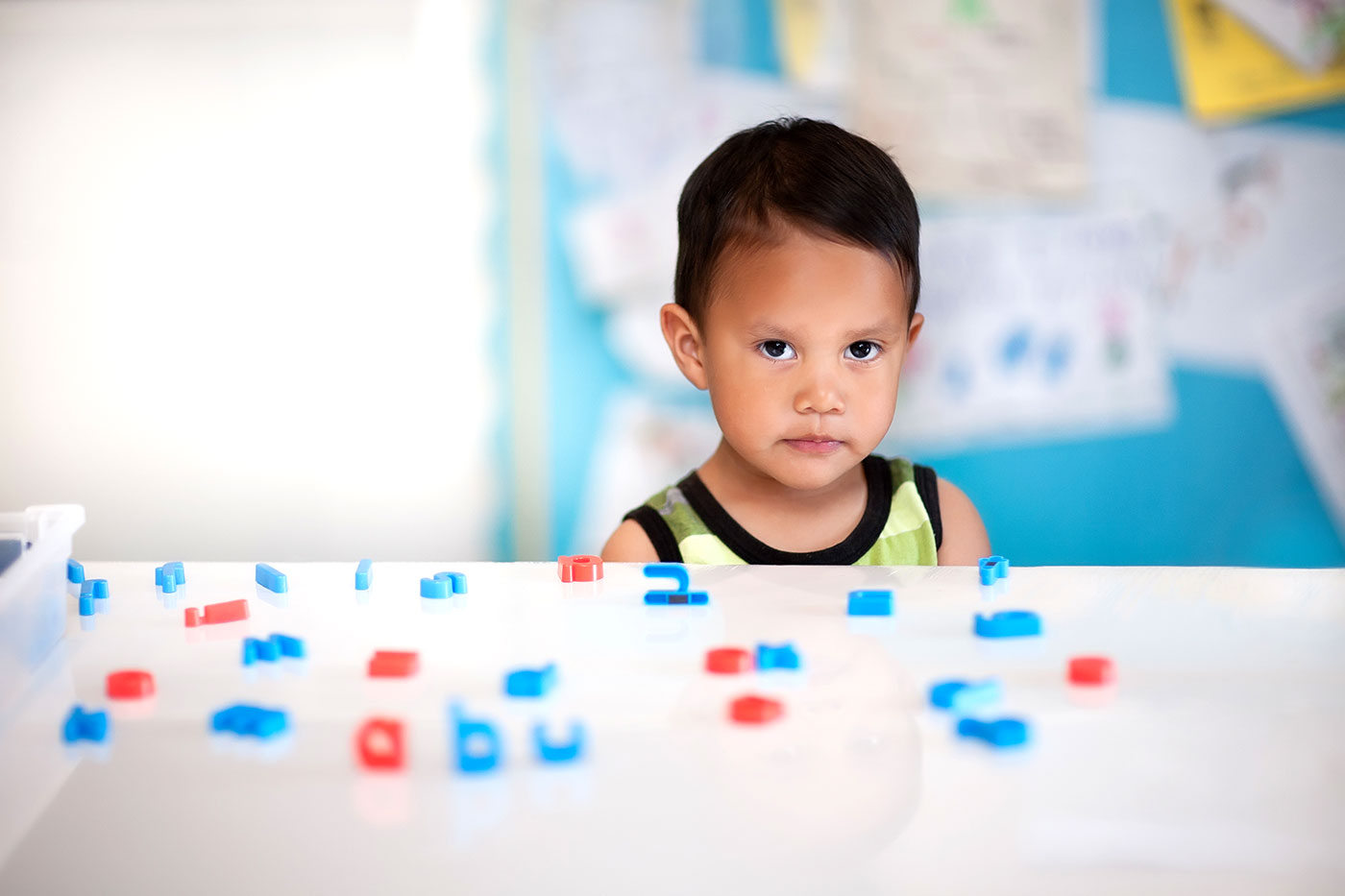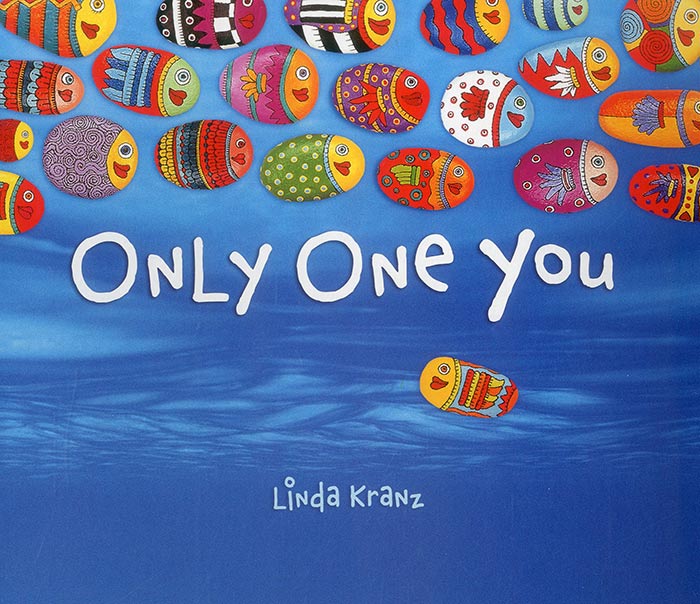6 Reasons to Stop Labeling Kids
From shy to outgoing, difficult to easygoing, learn the negative effects of labeling kids and why you shouldn’t label children.
 Why bother? I would think to myself each time I took an algebra or calculus exam in high school.
Why bother? I would think to myself each time I took an algebra or calculus exam in high school.
I expected to do poorly, so I didn’t even try. After all, I was the “artistic” kid. I was creative and a wordsmith, not a “math person.” As I grew up, I never considered I could do well in math classes, even throughout college.
It wasn’t until years later that I learned the downsides of labeling kids, and that I can be good at math. That anyone can do nearly anything, especially if they focus on effort instead of innate traits and characteristics.
Of course, these kinds of labels usually start with the best intentions. We try to encourage positive way to behave (“Good boy!”), foster passions (“He’s the athletic one,”), or motivate their academic ability (“You’re so smart!”).
But, just like the labels I grew up with made me believe I was bad at math, the use of such labels can do damage as well.
They limit and put people in boxes, leading us to conclude what we can and can’t do. What begins as praise and encouragement quickly snowballs into permanent labels that are difficult to shake off.
As parents, it’s easy to label our kids, whether for good or bad. We might label one child as athletic, the other as musical. Whether aloud or in our heads, we think one is difficult or challenging and the other is easy-going.
Each time we do this though, we fall into the labels trap without realizing the limiting effects and consequences. I’ve since learned its downsides and do my best to avoid them. Here are six reasons you should too:
Table of Contents
1. Labeling kids stops you from showing empathy
Some kids can seem like a “troublemaker,” but as strong-willed as they might be, labeling them this way makes it difficult for us to show empathy.
We might distance yourself from legitimate emotions and impulses that led them to behave this way. We’re likely to assign him a personality trait (“he’s a difficult child”) instead of showing them that we understand how they feel. Connecting and communicating become more challenging.
And labeling closes us off to seeing the situation from their point of view.
What can you do instead? Ask yourself what drove your child to behave this way. What had bothered him enough to hit his sister? What needs to change so he doesn’t do it again?
Imagine how different discipline can be when you correct the behavior instead of assuming this is simply who he is. Yes, he hit his sister, but now you can show empathy and learn why he did.
Free resource: Want more resources on raising a strong-willed child? Join my newsletter and grab your copy of 5 Tips to Raising a Strong-Willed Child! Discover how to nurture and work with—not against—his inner spirit and strong personality. Get it below—at no cost to you:
2. Labeling kids makes them feel bad about themselves
Your child hears what you say about him in conversations with other adults.
When you say, “Oh, he’s shy. He won’t do it,” or “I’m sorry—he’s so rowdy all the time,” he’ll believe what you say and that his shyness or rowdiness is “bad.”
Never mind that being reserved or having plenty of energy aren’t bad qualities. He might be introverted, feel stranger anxiety, or need to get his energy out.
He’ll feel self-conscious about being “rowdy and rambunctious” or “timid and shy.” He’ll believe that his feelings, choices, and actions make him a “bad person.” And he might even accept a negative perception about himself as true, even through adulthood.
3. It’s too early to label kids
We’ve all heard, “Oh, he’s going to be an engineer!” the minute our kids show a remote interest in how cars or machines work. Or, “Wow! She’s going to be a talkative one!” when they hear your baby happily babbling along.
Although friends and family mean well, these labels (even positive ones) assign kids a future at a very young age. Do this often enough, and the labels can stifle other interests, or make them feel bad if they make mistakes.
After all, few people know what they’ll go on to do this early in life.
Young kids will show interest in all sorts of subjects. Let’s allow them to decide—over time—their own interests. They might even explore all sorts of careers and hobbies over the course of their lives. Labeling them as an “athlete” or a “girly-girl” early on boxes them in.
4. Labels can be inaccurate
Children change day to day. In fact, we all do—we can’t be placed into neat categories or boxes.
Kids might act serious one day and hilarious the next. One day your toddler might smile and wave at every stranger, and the next cling to your leg or hide in your shoulder. He might deliberately disobey, then minutes later follow instructions to the letter.
Humans are capable of complex emotions, behaviors, and personalities—kids included.
It’s impossible to label someone and predict each action they’ll take. Every day, kids surprise us with their ability to zig when we expect them to zag—it’s one of the beautiful things about watching them grow!
5. Kids believe talents are innate and unchangeable
As a child develops and discovers her abilities, she might believe her talents are innate and unchangeable. Rather than understanding the value of practice and hard work, she can be easily discouraged and believe, I can’t do it, even if I try.
You see, if she’s labeled as athletic, artistic, or bookish, she starts to believe that label is her identity.
She might believe that sports are the only thing she does well or that science is the only class where she shines. A “jock” might feel she can’t explore art or that she’ll never be good at reading, and a “bookworm” can assume she’s not good at basketball.
Kids are more likely to do well in school and take on new endeavors when they don’t see these doors as out of reach. They learn that deliberate practice allows them to become better at almost any task. And they’re more willing to take risks and explore new experiences.
Expert tip
Use descriptive praise, not evaluative, to support your child. Descriptive praise like, “Wow, you practiced the violin and hit those notes!” describe what she does. Evaluative praise relies on other people’s opinion, “Wow, you’re so good at violin!”
6. Labeling kids makes it harder to correct behavior
Whether explicit or implied, labels are hard to shake off. When disciplined, your child believes that your negative feelings and words are directed at him as a person, rather than at his behavior.
If he knows hitting is “wrong,” then it’s easier to correct, especially if you reassure him that you love him no matter what—even if he misbehaves. But if he’s labeled as a “hitter” or “aggressive,” then the hitting behavior becomes much harder to change.
After all, how can he change who he supposedly is as a person?
He might wonder if it’s really worth the effort to curb his behavior if this supposed trait is inherent in him. Correcting the action or working through a feeling is more possible than changing his personality.
Conclusion
Disclosure: This article contains affiliate links, which means I will earn a commission—at no extra cost to you—if you make a purchase.
From behavior to social interactions to how they learn, labeling kids can do more harm than good (even with good intentions).
Labels can make it difficult to show empathy when your child struggles to behave—whether consciously or not, you start to believe in the labels too. Labeling might make her believe that behavior and personality traits define who she is when she can correct, change, or adapt them.
Childhood is a time for discovery, but labels can assign interests and traits before she even knows what she enjoys. Labeling also stifles her growth and limits her potential. After all, labels incorrectly convince her that her talents are innate rather than something that can change with effort.
Kids (and adults) are complex and diverse—and isn’t it great that we can’t fit into neat categories? None of us have just one or two traits, talents, or areas of expertise. We’re not bound to labels—so let’s do our best to stop labeling kids.
Because as it turns out, I learned that I actually like numbers and math, after all.
p.s. Check out Only One You by Linda Kranz, a children’s book all about being yourself:
Don’t forget: Join my newsletter and grab 5 Tips to Raising a Strong-Willed Child below—at no cost to you:





